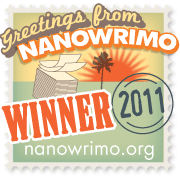This post was inspired by by recent read of ‘The Casual Vacancy’ by J.K Rowling. Ignoring anything about the actual story, I found her use of brackets a little bit weird. There was also such an unexpected use of incredibly vulgar language on the fifteenth page that I actually put the book down for a moment. Not that I have any problem with swearing, as anyone who has ever spoken to me will tell you, but it just seemed so unnecessary and out of place with the part of the story that I had read so far.
But anyway, to explain my issue with the brackets. The first use of brackets comes on page 16 and, from opening the brackets to closing them, there are 10 lines of text, which isn’t too extravagant. But the brackets after that frequently span over a page, the largest amount of text inside a pair of brackets is 1 page and 23 lines long, which is very nearly 2 pages.
There were times when I was reading where I would encounter a closing bracket and be completely confused because it had been so long ago that I’d forgotten ever having entered them! Surely if the information inside the bracket is so important that it takes 2 pages to explain then it shouldn’t be in between brackets but simply part of the story. Or is that just me? It might just be me that found the brackets bizarre, but we do all have things that we don’t like in other people’s writing.
I find the tendency to talk to the reader as if the book is a one sided conversation quite annoying as well. Tolkien does it a lot in The Hobbit, lines such as “I imagine you know the answer of course,” “Most likely you saw it some time ago,” and “I will tell you what Gandalf heard, though Bilbo did not understand it.” I suppose that it’s done to make sure that the reader understands what’s going on, but surely the writing should be able to do that on its own, shouldn’t it?
C.S. Lewis does it too, though in a slightly different way. He changes points of view during the story by using lines such as “And now of course you want to know what happened to Edmund.” He also apparently avoids writing passages that he doesn’t want to by writing things like “This lasted longer than I could describe even if I wrote pages and pages about it. But I will skip to the time when snow had stopped.”
He also randomly addresses the reader in brackets halfway through a sentence – “The stone dwarf which (as you remember) was standing a few feet from the lion”. I’m not sure what the bracketed as you remember actually adds to the story but I found it very irritating when reading! Now I’m not disputing that these are very well loved stories, both The Hobbit and The Lion The Witch and The Wardrobe were amoung my favourite books when I was younger, but I find them really hard to read now!
Another thing that annoys me when reading is too much detail. I found The Girl With the Dragon Tattoo quite difficult to read because of the amount of unnecessary detail that he puts in. He doesn’t just say that she was wearing dark clothes and stripy socks, he says “black t-shirt with a picture of E.T. with fangs, and the words ‘I am also an alien’. She had on a black skirt that was frayed at the hem, a worn-out black, mid-length leather jacket, rivet belt, heavy Doc Martens boots, and horizontally striped, green and red knee socks.”
She doesn’t just have her computer in her bag, it’s “The rucksack contained her white Apple iBook 600 with a twenty-five-gig hard drive and 420 megs of R.A.M., manufactured in January 6 2002 and equipped with a thirty-five-centimetre screen.”etc
Also, I’m sure that I’m not the only person outside of Sweden that had to Google Billy’s Pan Pizza to see what it was because it was mentioned so often. The characters don’t just drive somewhere, he gives you the entire route including street names and junctions. The Girl Who Played With Fire begins with chapters of the main character trying to solve an unsolvable equation in great detail. If the equation hasn’t been solved then most people aren’t going to understand it, it’s far too complicated!
Anyway, maybe I’m just an angry, easily irritated reader, but there seem to be quite a lot of things that I don’t like about different writer’s styles. It doesn’t usually stop me from reading, but I do tend to roll my eyes a bit and skim read some sections!
Does anyone else get irritated by other writer’s little quirks or is it actually just me? What do you hate to read? Is there anything that you find irritating that other people seem to love? And are you guilty of any strange idiosyncrasies in your writing?



